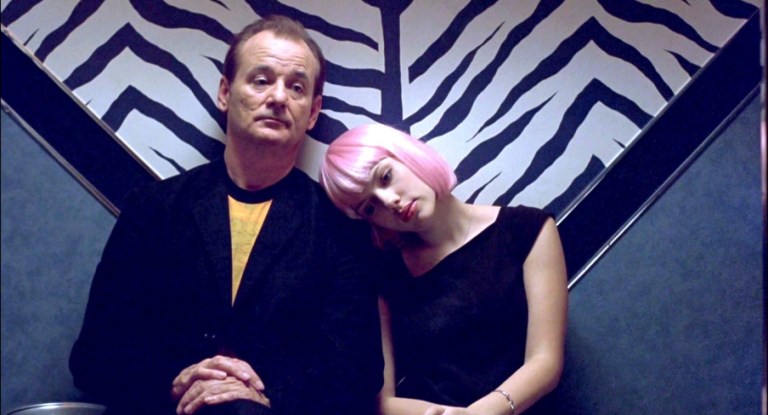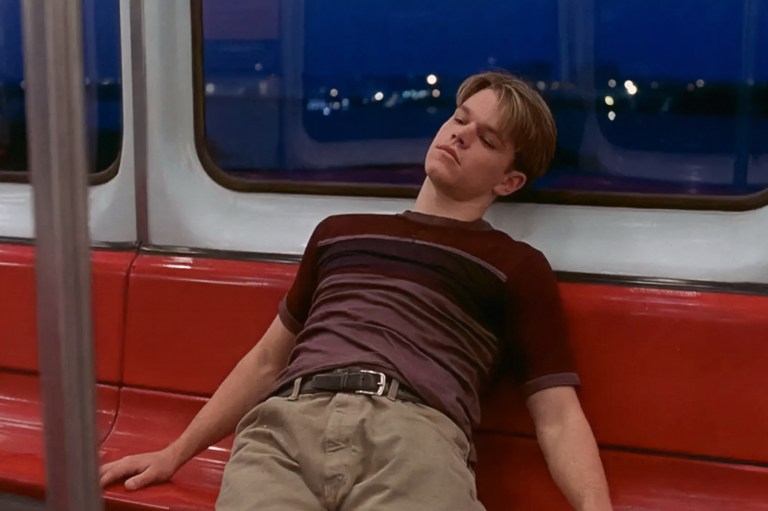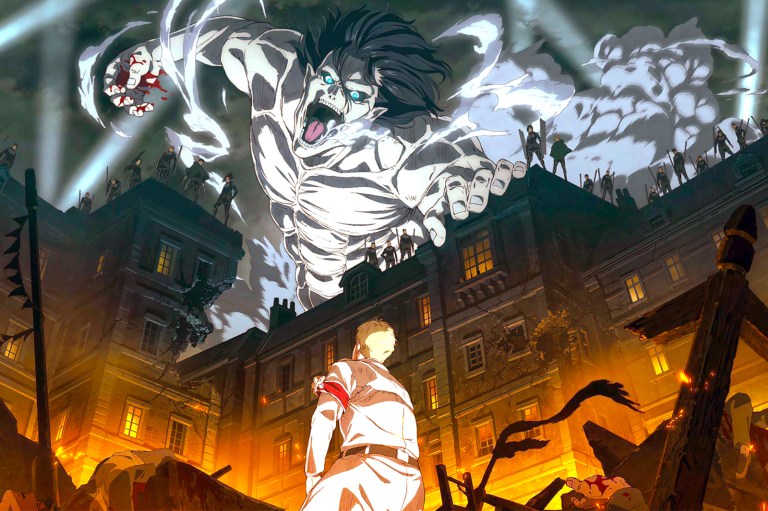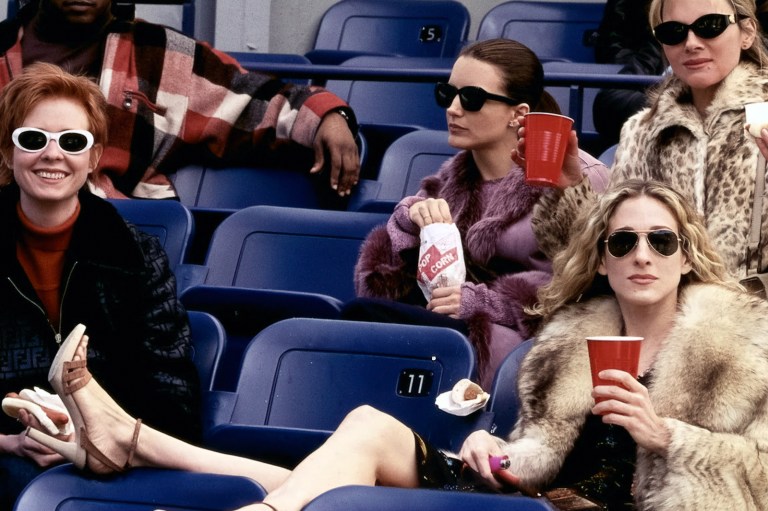
The 10-Minute Exercise That Will Help You Decide What To Do With Your Life
I hated Manhattan when I came home. It seemed a desk job purgatory. I had just spent two years riding a bicycle around Eurasia and working as a journalist, and even the most glamorous jobs the town had to offer seemed boring.

I hated Manhattan when I came home. It seemed a desk job purgatory. I had just spent two years riding a bicycle around Eurasia and working as a journalist, and even the most glamorous jobs the town had to offer seemed boring. The thought of working in a midtown tower made me depressed. The insane focus and ambition with which my friends hurled themselves into those office buildings made me even more depressed. I looked at my future with half-closed eyes, feeling that nothing I could do would ever be as exciting or fulfilling as what I had just done. How could anything involving a desk be more awesome than waking up in an isolated monastery in the jungles of Burma?
I was tempted to leave again and wander. I even bought a plane ticket back to India, where I’d spent five months. But I couldn’t leave. I knew that running away from the daily grind of a productive life, looking always for the next adventure high, would bring me nowhere. I’d met the guys who’d been on the road too long. They were hulls of men, chasing a fix they could no longer feel, and they almost all cracked their first beers before 11. So I sat, and wrung my hands, and wrote a lot of bad pieces I couldn’t bear to publish, and wondered what I should do next with my life.
I wasn’t alone in asking that question. I’m 24, which means that most of my friends are asking themselves some version of it— What’s next? For me, journalism was out. That career dream died the day I actually imagined myself holed up in a news room, busting out click bait. I thought about advertising, PR, doing biz-dev for a web video outfit that did story-based branding (would you like another buzzword with that?), even joining a tech startup. I went to a lot of exploratory meetings that ended disastrously.
It was at a very boring cocktail party that I was struck with a novel thought (to me). It would end my crisis of indecision. Whenever someone approached me that awful, dreaded question, So what do you do?, with a drink in one hand and a judgement in the other, the standard answer was an industry. You were expected to say, “I work in journalism,” or “I’m interested in getting into advertising.” But when I spoke to people I wanted to work with, we always focused on skills. As in, “I’m really good at selling stuff to people,” and “I can build effective story lines.”
We identify our careers more with the industries we work in than with the skills we bring to them.
This is silly. And limiting. It’s not hard to see why. If I’m really good at writing code, I can easily switch from writing code that makes financial transactions more efficient for JP Morgan to writing code that makes warehouses more efficient for Zappos. I cannot easily stop writing code for Zappos to start designing a specialty shoe line for them, or even stop writing the back end code to start writing front end code. In other words, in a world of hyper specialization, it’s easier to move across industries with a practiced skill than between skills in the same industry.
So why do we still talk about our futures as siloed in a single sector?
It’s more useful to start thinking of our futures in terms of the skills we want to develop.
I put my insight into action the day after the party by sitting down and making a list of everything I liked to do. It was: write, run long distances, have dangerous adventures, climb mountains, talk to new people, sell people things, ski, build cool story lines, speak publicly. I had a few rules in developing this list. Every item had to be an action that could be completed in a day, and everything had to be positive—I couldn’t write down things I didn’t like.
Then, a thought exercise: What if my entire career only lasted a day? What would I want to spend that day doing? Which of my talents would contribute the most to whomever I chose to spend that day with?
That whittled it down to four: talk to new people, sell people things, speak publicly, write.
I took the results of my experiment to my closest mentor, along with all the more adventurous interests that didn’t survive the test. He looked at it for a second and suggested:
“Why don’t you go work on a political campaign?”
That threw me for a loop. I’d never even considered the notion before. But the more I thought about it, the more it made sense. It would employ and develop most of my skills.
So I googled the most competitive midterm races in the country and asked all my favorite candidates for a job. As I write this, my belongings are already locked in storage. I’m going to Iowa tomorrow to spend the rest of the election cycle organizing volunteers for the Democratic Party.
Iowa is, quite literally, the last place I would have dreamed to go three weeks ago.
I have no idea whether I will like political organizing, or Iowa; they are both new to me. But I have confidence that I will be good at it, and that I will take a lot away from it, because my job will pull from skills I have been developing my entire life.
Putting this practice—thinking of our future only in terms of the development of skills—can be difficult. It requires a short-term shortsightedness. It asks that, to begin, you think only of one day, and what you actually want to do with that day. That means you have to consider your skill in isolation for the joy it brings you, and forget about whatever accolades or prestige or salary that skill will bring later. The exercise asks that you forget, for a moment, about the larger ambition you have in the world, and you chase only the experiences that you love.
It’s a temporary problem. The longer we discipline ourselves to hone a skill day after day, the better we will get at it, and the more visible the spectrum of its relevance will become. If you work on marketing every day, then you will see an ever increasing group of people in need of your talents, from American politicians who need to win an electorate to Syrian war refugees that need more donations to aid organizations. The better we understand our core skills, the more easily we can integrate ourselves with teams that are in need of them. That means we join bigger projects with bigger impacts. We work with better talent. Eventually, maybe, we get the salary and the awards and cocktail parties thrown in our honor. But those all come later, after mastery—a month, a year, three decades down the line. Or maybe they don’t. For now, as lost lambs of the millennial generation, we can only focus on the one day we have a firm grasp on—tomorrow. How do we want to use it? What skill will we build? ![]()












